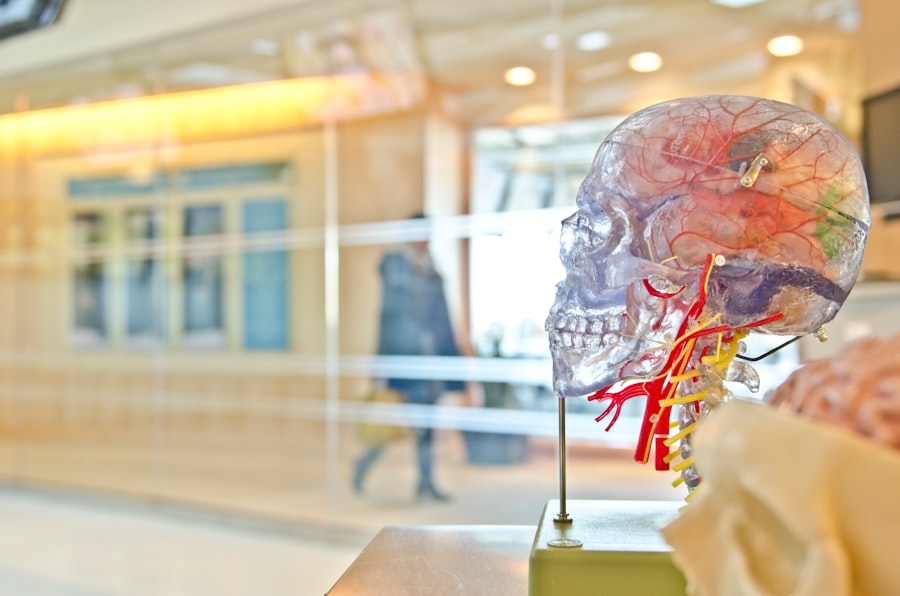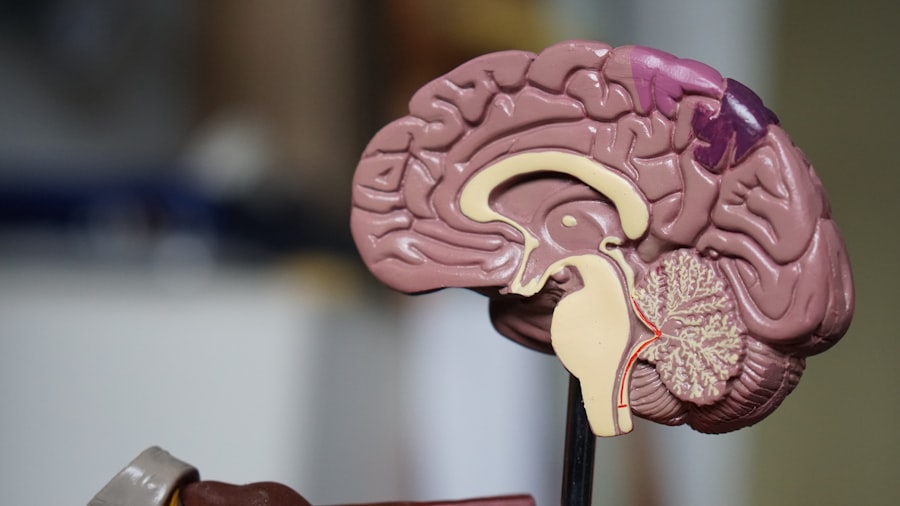Depression is a complex and often misunderstood mental health condition that affects millions of people worldwide. It’s more than just feeling sad or having a bad day; it’s a persistent state of emotional and physical distress that can significantly impair one’s ability to function in daily life. I remember the first time I encountered the term “depression” in a serious context.
It was during a conversation with a friend who had been struggling for years. She described it as a heavy fog that enveloped her, making even the simplest tasks feel insurmountable. This metaphor resonated with me, as it encapsulated the pervasive nature of the condition.
The World Health Organization recognizes depression as a leading cause of disability globally, highlighting its profound impact on individuals and society. It can manifest in various forms, from major depressive disorder to persistent depressive disorder, and even seasonal affective disorder. Each type has its unique characteristics, but they all share common threads of hopelessness, fatigue, and a lack of interest in activities once enjoyed.
Understanding depression is crucial not only for those who suffer from it but also for friends, family, and society at large, as it fosters empathy and encourages supportive environments.
Key Takeaways
- Depression is a common mental health disorder characterized by persistent feelings of sadness and loss of interest in activities.
- Symptoms of depression can include changes in appetite, sleep disturbances, fatigue, and difficulty concentrating, and a diagnosis is typically made based on a thorough assessment by a healthcare professional.
- Medication, such as antidepressants, can be an effective treatment for depression, but it may take time to find the right medication and dosage that works for each individual.
- Psychotherapy, such as cognitive-behavioral therapy (CBT) and interpersonal therapy, can help individuals learn coping skills and address underlying issues contributing to their depression.
- Lifestyle changes, such as regular exercise, healthy eating, and stress management, along with self-care practices like mindfulness and relaxation techniques, can also play a significant role in managing depression.
Identifying Symptoms and Diagnosis
Recognizing the Common Symptoms
Depression can manifest in various ways, but some common symptoms include persistent sadness, irritability, changes in appetite or weight, sleep disturbances, and difficulty concentrating. For many, these symptoms can be subtle and easily overlooked, making it essential to be aware of them.
The Overwhelming Sense of Fatigue
In my experience, one of the most striking symptoms of depression was the overwhelming sense of fatigue that seemed to permeate every aspect of my life. Even after a full night’s sleep, I would wake up feeling drained and unmotivated. This persistent exhaustion made it challenging to carry out daily tasks and activities.
The Path to Diagnosis and Recovery
Diagnosis typically involves a comprehensive evaluation by a mental health professional who will assess the individual’s symptoms, medical history, and overall functioning. It’s essential to note that there is no single test for depression; rather, it’s a nuanced process that requires careful consideration of various factors. Receiving a professional diagnosis can be a mix of relief and apprehension, marking the beginning of a challenging journey toward recovery.
The Role of Medication in Depression Treatment

Medication can play a significant role in the treatment of depression, particularly for those with moderate to severe symptoms. Antidepressants are commonly prescribed to help balance chemicals in the brain that affect mood and emotions. I’ve spoken to many individuals who have found relief through medication, describing it as a lifeline that allowed them to regain control over their lives.
However, it’s essential to understand that medication is not a one-size-fits-all solution; what works for one person may not work for another. The process of finding the right medication can be a journey in itself. It often involves trial and error, as different medications can have varying effects on individuals.
I recall my own experience with this; it took several months and consultations with my doctor before we found the right balance. During this time, I learned the importance of patience and open communication with my healthcare provider. While medication can be incredibly beneficial, it’s crucial to approach it as part of a comprehensive treatment plan that may also include therapy and lifestyle changes.
Psychotherapy and Counseling Approaches
| Approach | Description | Key Concepts |
|---|---|---|
| Cognitive Behavioral Therapy (CBT) | Focuses on changing negative thought patterns and behaviors | Thought restructuring, behavior modification |
| Psychodynamic Therapy | Explores unconscious thoughts and past experiences | Unconscious processes, childhood experiences |
| Humanistic Therapy | Emphasizes self-exploration and personal growth | Self-actualization, empathy, authenticity |
| Family Therapy | Addresses family dynamics and relationships | Family systems, communication patterns |
Psychotherapy, or talk therapy, is another cornerstone in the treatment of depression.
I’ve personally found therapy to be transformative; it allowed me to unpack emotions I had buried for years and gain insights into my behavior patterns.
Different therapeutic approaches exist, including cognitive-behavioral therapy (CBT), interpersonal therapy (IPT), and psychodynamic therapy, each offering unique techniques tailored to individual needs. Cognitive-behavioral therapy, in particular, focuses on identifying negative thought patterns and replacing them with healthier ones. This approach resonated with me because it empowered me to take an active role in my recovery.
I learned how to challenge my inner critic and reframe my thoughts in a more positive light. Therapy is not just about discussing problems; it’s about equipping oneself with tools to navigate life’s challenges more effectively. The relationship between therapist and client is also vital; having someone who listens without judgment can make all the difference in the healing process.
Lifestyle Changes and Self-Care Practices
In addition to medication and therapy, lifestyle changes play a crucial role in managing depression. I’ve discovered that incorporating regular physical activity into my routine has had profound effects on my mood and energy levels. Exercise releases endorphins—often referred to as “feel-good” hormones—which can help alleviate symptoms of depression.
Even simple activities like walking or yoga can make a significant difference in how one feels. Self-care practices are equally important in fostering mental well-being. I’ve learned to prioritize activities that bring me joy and relaxation, whether it’s reading a book, spending time in nature, or practicing mindfulness meditation.
Establishing a daily routine that includes self-care can create a sense of stability and purpose, which is often lacking during depressive episodes. It’s essential to remember that self-care is not selfish; it’s a necessary component of maintaining mental health.
Alternative and Complementary Therapies

As I navigated my journey through depression, I became increasingly curious about alternative and complementary therapies that could enhance my treatment plan. Approaches such as acupuncture, aromatherapy, and herbal supplements have gained popularity among those seeking holistic methods to manage their symptoms. While these therapies may not replace traditional treatments like medication or therapy, they can serve as valuable adjuncts.
For instance, I tried mindfulness meditation and found it incredibly beneficial for reducing anxiety and promoting relaxation. The practice encourages being present in the moment and cultivating self-compassion—two aspects that can be particularly challenging for those dealing with depression. Additionally, some individuals have reported positive experiences with herbal supplements like St.
John’s Wort or omega-3 fatty acids; however, it’s crucial to consult with a healthcare provider before incorporating any new treatments into your regimen.
Addressing Co-occurring Disorders and Dual Diagnosis
Many individuals with depression also experience co-occurring disorders such as anxiety, substance use disorders, or eating disorders. This dual diagnosis can complicate treatment but is essential to address for effective recovery. I’ve seen firsthand how intertwined these conditions can be; when one is left untreated, it often exacerbates the other.
For example, someone struggling with both depression and anxiety may find themselves caught in a cycle of negative thoughts that perpetuates their distress. A comprehensive treatment plan that addresses both conditions simultaneously is vital for achieving lasting recovery. This may involve integrated therapy approaches that target both depression and any co-occurring disorders.
I remember feeling overwhelmed when I first learned about dual diagnosis; however, understanding that I wasn’t alone in this struggle provided me with hope. Seeking help from professionals who specialize in treating co-occurring disorders can lead to more effective strategies tailored to individual needs.
The Importance of Ongoing Support and Follow-Up Care
The journey through depression doesn’t end with treatment; ongoing support and follow-up care are crucial components of long-term recovery. I’ve come to appreciate the value of having a support system—whether it’s friends, family, or support groups—who understand what I’m going through. Sharing experiences with others who have faced similar challenges can foster connection and reduce feelings of isolation.
Regular follow-up appointments with mental health professionals are also essential for monitoring progress and making necessary adjustments to treatment plans. I’ve learned that recovery is not linear; there will be ups and downs along the way. Having a trusted therapist or counselor to turn to during difficult times has been invaluable for me.
It reinforces the idea that seeking help is not a sign of weakness but rather an essential step toward healing. In conclusion, navigating depression is undoubtedly challenging, but understanding its complexities can empower individuals on their journey toward recovery. By recognizing symptoms, exploring treatment options like medication and therapy, making lifestyle changes, and seeking ongoing support, we can foster resilience and hope in the face of this pervasive condition.
Each person’s experience with depression is unique, but together we can create a community of understanding and compassion that encourages healing for all.
Clinical Key offers a wide range of resources for healthcare professionals, including articles on mental health issues such as depression. For more information on understanding depression causes and coping strategies, check out this informative article on Snoring Head.
To learn more about stress management and its impact on health, visit Snoring Head. Furthermore, there is a surprising link between drinking and snoring that may be of interest to healthcare professionals. For more information on this topic, read the article on Snoring Head.
FAQs
What is Clinical Key?
Clinical Key is a clinical search engine designed to provide healthcare professionals with access to a wide range of medical resources, including journals, books, guidelines, and multimedia content.
What types of resources are available on Clinical Key?
Clinical Key offers access to a variety of resources, including medical and surgical journals, textbooks, drug monographs, guidelines, patient education materials, and multimedia content such as videos and images.
Who can access Clinical Key?
Clinical Key is primarily designed for healthcare professionals, including physicians, nurses, and other medical professionals. Access to Clinical Key may be provided through institutional subscriptions or individual accounts.
How can Clinical Key be used in clinical practice?
Healthcare professionals can use Clinical Key to access up-to-date medical information, research evidence, and clinical guidelines to support their decision-making in patient care, research, and education.
Is Clinical Key a reliable source of medical information?
Clinical Key provides access to content from reputable publishers and professional organizations, making it a reliable source of medical information. However, healthcare professionals should always critically evaluate the information they find and consider the context of individual patient cases.



